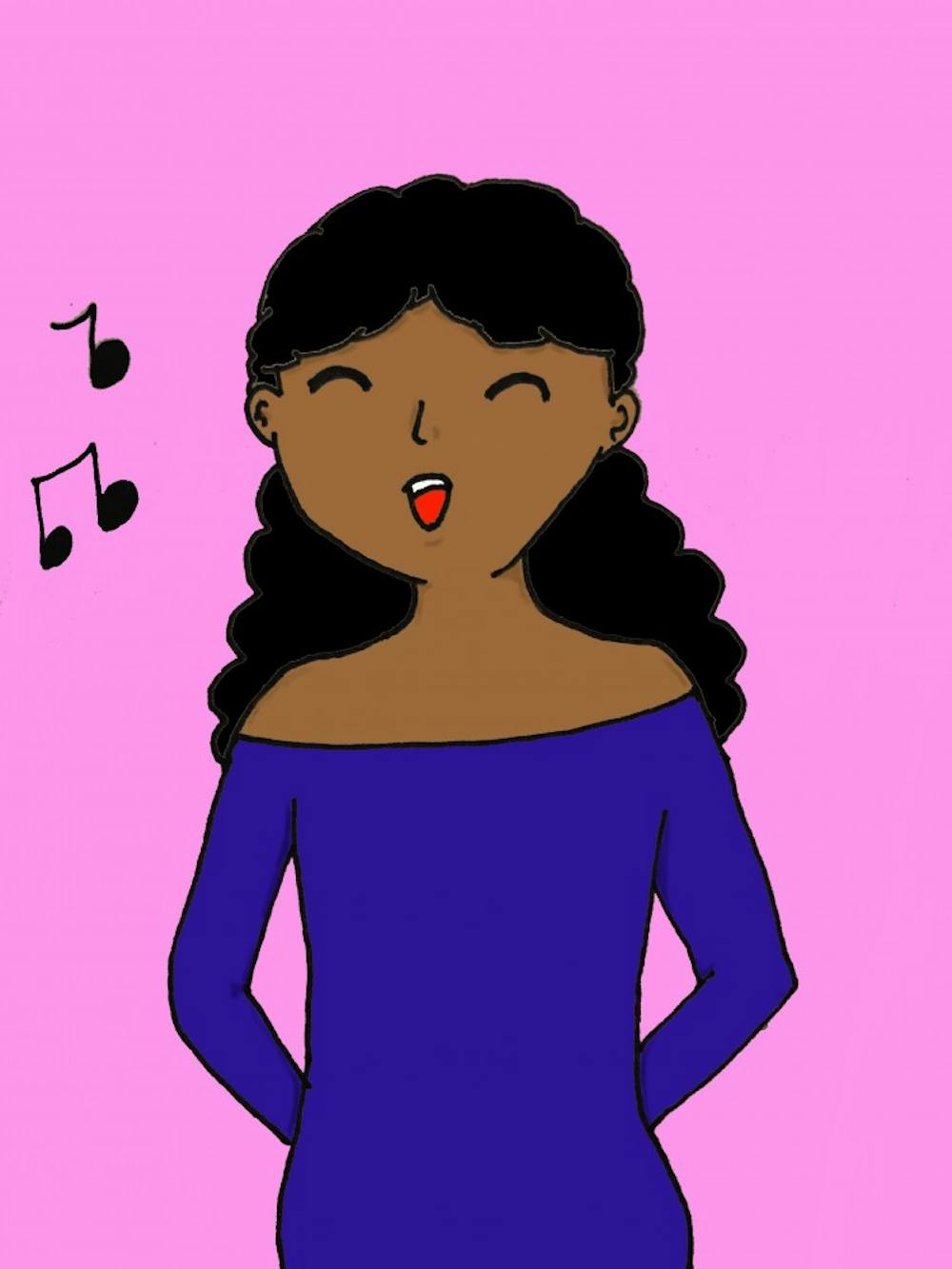I remember walking into Richardson Auditorium during my Princeton Preview visit, my heart brimming with excitement and a pen in my hand to star every group I planned on auditioning for. As the show was about to start, the sound of heels and dress shoes clicking on the wooden stage filled the microphones. A single note was given. Each person took a deep breath, in unison of course, and out came the most beautiful harmony. The smiles never left their faces.
Another group entered in the same way, but something caught my eye that I hadn’t noticed before. I thought it was just a fluke, but as the night progressed, group after group came out with few people of color in their ranks. Looking up at the groups passed, I could no longer see myself singing and swaying with them as I had wanted to just 30 minutes before. I was crestfallen in a way I couldn’t articulate. When fall came, I still very much wanted to sing on campus. After not making Glee, I decided to reopen my mind to the possibility of a cappella. I now regard this as one of the best decisions I’ve made during my time at Princeton, as my a cappella group has become my family.
However, I remain hyperaware that I am the only Black person in the group. And I’m not alone.
There is a lack of diversity on Princeton’s music scene (i.e., a cappella, Glee Club, theatre, the music department, etc.) that results in the voices of certain minority groups not being heard, as well as the continuation of talented Black and Brown performers turning away from these groups, feeling as though they don’t belong. As a Black woman and a music major heavily involved in multiple facets of music, I felt the same.
For those not familiar with the term “token,” it’s someone of a given identity who is the only person of their identity in each group, there being the sole representation, caricature or otherwise, of the group they identify with.
When participating in music on Princeton’s campus as a person of color, you become a token. We are the representation of our identities, good or bad. When first-years interested in music come here, we are who they see.
If this was one group, I would understand. The problem lies in the eight groups in Acaprez — the governing body of a cappella made up of the eight oldest groups — having only a handful of Black and Brown bodies. The music department? The same. Glee and Chapel Choir? Homogenous. The most diverse musical space on campus is the theatre department, which still struggles to make ends meet when Black and Brown characters are needed. Many are turned off from music on campus because they, like me, don’t see a space for themselves in these groups. This has come from many conversations with other Black and Brown performers who feel the same.
Crucial voices are lost in music on campus. There have been many times I have had to stand against microaggressive alumni asking if I’m really a Princeton student despite confirming those around me were Princeton students. I’ve sat through an auditionee singing a song with heavily negative racial connotations, feeling like I’m the only one who’s immediately angered by it. I’ve stood against comments regarding harmful stereotypes of certain groups made by members of other groups because they lack that voice. I defend people of color because if I don’t say something, I’m not sure anything would be said.

If my being there makes the groups I’m in a better, more inclusive, and thoughtful space, I am successful. Other groups cannot have this opportunity if they lack diverse voices and will continue to suffer under the same racially ignorant pretenses that plague most other parts of the University.
Now, this can be a commentary on either the University’s demographics or on the groups who choose who to let in because of implicit biases. Regardless of which it may be, something needs to be done to fix these spaces.
The uniqueness of music allows it to be appreciated by all identities. It simply cannot continue to belong to one or two.
Kirsten Keels is a sophomore from West Fork, Ark. She can be reached at kkeels@princeton.edu.









